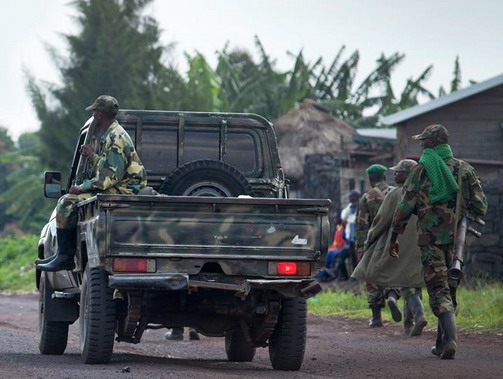Attempting to end hostilities in the eastern Democratic Republic of Congo (DRC) is the mandate of a Southern African Development Community (SADC) peacekeeping mission now in its second year of deployment but it is seemingly finding the going difficult.
This inference comes from statements by senior European Union (EU) and United Nations (UN) staffers on an M23 offensive launched on 2 January.
Senior EU spokesperson Kaja Kallas condemned this week’s occupation of Masisi town and surrounds by the group. “The continued advance of M23 is a flagrant violation of the ceasefire agreed upon in the framework of the Luanda process. The latest developments significantly undermine efforts undertaken towards a peaceful resolution to the conflict in eastern DRC,” an EU statement has her saying.
Also this week, the senior UN staffer in DRC, Bintou Keita, expressed her condemnation of the M23 actions. “The attack,” a UN statement reads in part, “resulted in the deaths of at least seven civilians and displaced tens of thousands, further exacerbating the severe humanitarian crisis in eastern DRC”.
It continues: “The M23, which according to the UN Group of Experts, is supported by external forces from a neighbouring start, violated the ceasefire agreement signed on 30 July between the DRC and Rwanda. As of 4 January, M23 had taken control of Masisi town, the administrative centre of the territory bearing the same name”.
Keita notes further in the statement that the escalation of violence “cruelly impacts civilian population, marks a tragic turn at the start of 2025 and must cease immediately”.
The EU statement has Kallas urging the rebel group to withdraw immediately and “fully abide by the ceasefire”.
“The EU urges Rwanda to end its co-operation with M23 and withdraw its military forces from the DRC territory. The EU stresses the importance that all parties to the conflict de-escalate and rapidly implement all decisions and commitments agreed under the Luanda process, to which the EU reiterates its full and steadfast support and commitment. The EU urges the DRC to cease co-operation with the FDLR (Forces Démocratiques de Libération du Rwanda) and other armed groups.”
She warns the European bloc “stands ready to consider new restrictive measures against those responsible for sustaining the armed conflict, instability and insecurity in DRC”.
While not going as far, Keita, MONUSCO Head and Special Representative of the UN Secretary-General Antonio Guterres, urged all involved to “work constructively to end violence and achieve a peaceful, lasting resolution to conflict in the region”.
Matthew Miller, US Department Spokesperson, condemned the “brazen ceasefire violations in eastern Democratic Republic of the Congo (DRC) by the Rwanda-backed, US- and UN-sanctioned M23 armed group. The continued advances by the M23, including the taking of Masisi town this weekend, damage efforts to reach a negotiated peace in eastern DRC while harming and displacing civilians in the area. M23 must immediately cease hostilities and abide by the ceasefire. We reiterate our longstanding call for Rwanda to immediately withdraw all Rwanda Defence Force personnel and equipment from the DRC.”
To end the conflict and suffering, it is vital that both the DRC and Rwanda uphold their commitments to the Angola-mediated Luanda Process and ensure that the reinforced ad hoc verification mechanism is operational.
The mandate of SAMIDRC (SADC Mission in DRC) was extended to December this year ahead of its first mandate expiring on 15 December last year. Malawi, South Africa and Tanzania – the three troop contributing countries (TCCs) to the MONUSCO Force Intervention Brigade (FIB) – are the only three countries to commit troops and equipment to the regional bloc mission.



